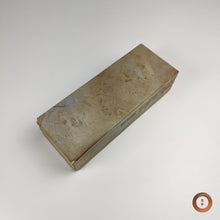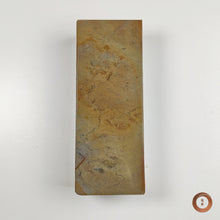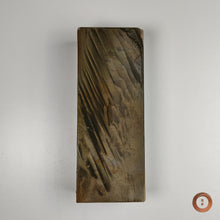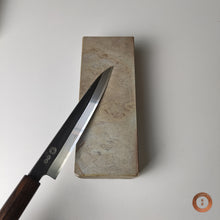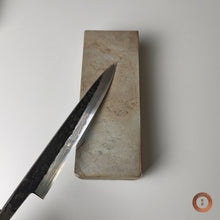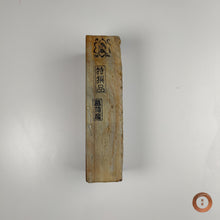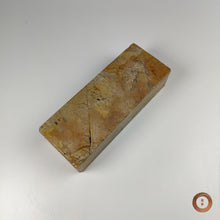
Quarrying whetstones in Kyoto began centuries ago in the Kamakura era. Shobudani is said to be the original location for whetstones mined from the Honguchi Naori. Originally the term Honyama/Honzan was used only for whetstones mined from Shobudani or Nakayama. Today we see this term used to categorise whetstones mined from other clusters around Kyoto.
This Suita has a moderate hardness and a very smooth sharpening feel, with the ability to give brilliant contrast and shine, while also visually enhancing the grain structure of the blade material. Tactile feedback on secondary bevel sharpening was very intuitive, and resulted in a super fine and keen edge. A top class specimen of Shobudani's Suita.
Size: 205 x 78 x 56
Weight: 2060g
This stone is sealed on the sides and back.
- The 2nd image shows the wet surface
- The 3rd image shows the swarf from sharpening - the blade material was soft iron and Blue 2
- The 7th image shows the back
- Before using this whetstone, the knives were sharpened to an even 3000 grit finish using Suehiro Debado SNE #3000
As with all whetstones, this Suita should be lapped well prior to every use. The amount of slurry, water and pressure used will greatly influence the result. For working the primary bevel on this particular whetstone, I recommend starting without any pre-slurry. Finish the secondary bevel before the whetstone goes too out of flat, or lap the surface again before contacting your secondary bevel. For only honing your edge/secondary bevel, I recommend pre slurrying the surface.







